When is the right time to talk to your children about racism?
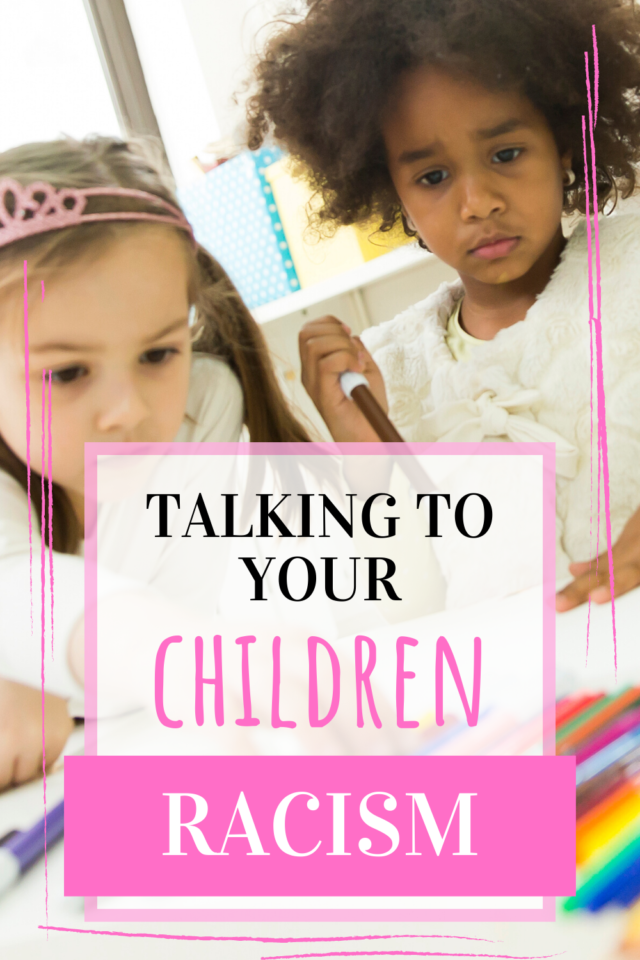
I ask myself the question, “Is now the right time to talk to my children about racism?” As a black woman, married to a black man, raising two black children (a four-year-old girl and a two-year-old boy), I wonder when will be the right time to approach this topic. When is the right time to tell my children that there are people in this world who hate you simply because you exist? So many of my experiences are rooted in race. I am very aware of implicit bias, and that others will treat me based on the assumptions they’ve made about women that look like me. This is one of the reasons that I hate statements like, “I don’t see color.” You should see color! I NEED you to see color. By not seeing color, you are ignoring all of the things I encounter because of my color. So much of my experience is impacted by the color of my skin.
I often talk about race with my children. In my house, we are black and proud. My children know that their black is beautiful. My husband and I teach our children that black people are not a monolith. Though we have some shared experiences, we are diverse in our appearances, socioeconomic statuses, political views, religions, and our tastes. We are very intentional about the types of media they are exposed to. We ensure that they see themselves depicted positively in the books we read and the television shows we watch. We are teaching them that we descend from kings and queens in Africa and that black history doesn’t begin with a slave ship. They know we are a part of a culture of strong men and women who constantly defy the odds and the circumstances set upon them. They know our ancestors played a foundational role in building this country. What they don’t know is that there are people who will see my beautiful, innocent children and view them as potential threats simply because of the melanin in their skin.
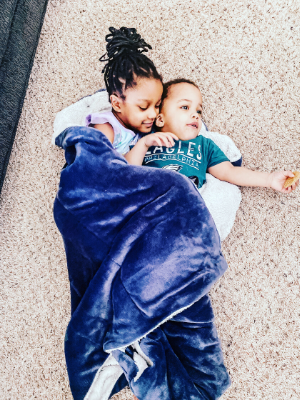
Talking about racism is a different conversation than one about racial pride. There is a constant balancing act between protecting their innocence and preparing them for a world that doesn’t see them as children, a world that views them as dangerous. I teach my children every day to see the best in people. I find it very difficult to find the words to let them know that, unfortunately, there are people that won’t afford them the same courtesy.
When is the right time to tell them that?
Is high school the right time to talk to your children about racism?
Maybe high school is the right time to approach the topic. I remember my first day of high school vividly. I was in my social studies class, and we were given a writing assignment about our most memorable experience that summer. I wrote about going to Disney World with my family when we visited my father. Though my married parents lived together in New York, he was working in Florida for the summer. In the middle of reading my paper to the class, one of my classmates, a white girl, yells out, “You know your dad? I didn’t know Black kids knew their dads.” Other students laughed as I stood there, mortified. I don’t remember what the teacher’s response was to the other student, which tells me it wasn’t enough. This girl’s ignorance was on display while I stood in front of the classroom in discomfort. I took that moment to educate her and let her know that her views were rooted in bigotry and hate. I shouldn’t have had that responsibility at 14 years old.
High school is too late to begin this conversation with your children.
Is middle school the right time?
Some might think middle school is a good time. I attended an inner-city middle school in an under-resourced community, where most of the families were black and brown. The majority of our teachers were white, and they did not live in the school’s neighborhood. I can think of countless times when the children in my school were referred to as animals by those teachers. Think about that: The adults that were charged with our care, had the audacity to refer to us as animals out loud.
They were brazen in their contempt. But, I couldn’t think of any reasonable excuse to justify their feelings. Were the children who attended my middle school well behaved? No. Many of them were trying to overcome trauma from their own existence and were acting out as a result of those traumas. Does the behavior of the students excuse those teachers’ heinous behavior? Absolutely not.
Middle school is too late to begin the conversation about racism.
Is elementary school the right time to talk to your children about racism?
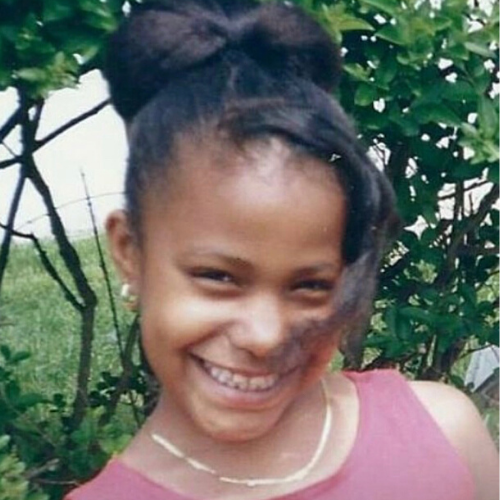
I believe children can grasp the concept of racism as early as elementary school. My white peers certainly did. I was elementary-aged the first time I was called a nigger. I was at the mall. My mother was shopping at Children’s Place. I used to love that store because they had a slide. While my mother was shopping, I was having fun at the slide. I was about to take my turn on the slide when a white boy told me, “Hurry up, nigger!” Even at that age, I knew those were fighting words. But, I was by myself, and there were several other white children in line for the slide behind him. They heard his viciousness, but they looked at me like I was the bad guy. I was about six or seven at the time, and he was about eight or nine. I decided it was best not to react. I slid down the slide and walked around the store with my mother for the remainder of the time. I didn’t tell her what happened because I didn’t want her to overreact.
Elementary-aged is too late to begin the conversation about racism.
Is preschool the right time?
There are several studies that indicate that children experience racism by the time they reach preschool. Little black girls are suspended at significantly higher rates than their white counterparts (click here to read the article). Preschool teachers spend significantly more time focused on black boys expecting misbehavior (click here to read more about this study). I was four years old when my mom first spoke to me about the realities of racism, but it was after I experienced it for the first time. I was four… the same age as my daughter.
We were at my grandmother’s community pool in Rockaway Beach, NY. We were one of the only black families at the pool that day. My mother and grandmother were laid out by the pool, as I frolicked in the kiddie pool. At the other end of the pool was a pretty little girl with blonde hair, about my age. I approached her and asked her if she wanted to play Marco Polo. She turned around to me and said, “NO! You’re Black and dirty!” Then she splashed me with water. I was shocked. I looked up at her mother, who saw what had occurred. What was her reaction? She looked at me, she looked at her daughter, then went back to reading her magazine. At that moment, I lost a piece of my innocence, and that woman couldn’t have cared less.
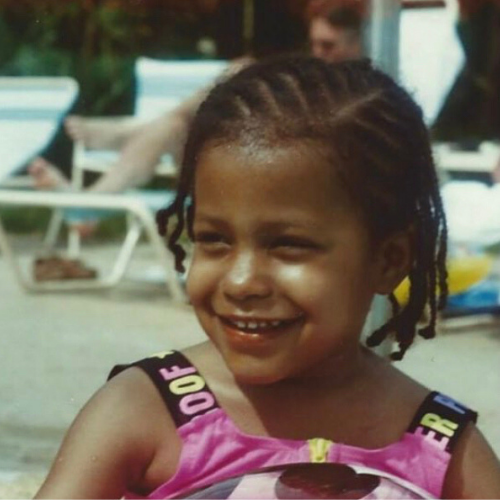
I remember running over to my mother and grandmother crying and telling them what happened. My mother told me to go back to that little girl and tell her Black is beautiful, and to splash her back. That’s precisely what I did. The little girl and her mother were now the ones that were shocked. They packed up their stuff and left the pool area. The next thing that happened blew my mind. The other white families at the pool also packed up their stuff and left. We ended up being the only family left at the pool. Was my mother’s response to their bigotry the right way to handle it? No, I don’t think so. How would I have responded if that were my child? I really don’t know, but I should probably figure it out. It breaks my heart to know that it’s likely not a matter of if my children will have experiences like these, it’s a matter of when.
When should you talk to your children about racism? I don’t have the answer.
Would I have been prepared to deal with the racism at the pool if I knew that there were people who thought like that little girl and her family? I am not sure. What I am sure of is that racists are introducing their bigoted ideas to their children at birth. I am sure that prejudice people infiltrate schools, doctors’ offices, malls, police forces, and workplaces. While I want my children to maintain their innocence, I also want them to be able to identify when they (or those around them) are experiencing bigoted behavior. I want them to feel empowered to address it head-on. I want them to maintain their youthful ability to remain hopeful that things will get better, despite what they see in 2020. I want to help them healthily process that trauma, and I want to teach them how to advocate for themselves.
Maybe the time is now.
When do you think it is the right time to talk to your children about racism? Let me know in the comments below.

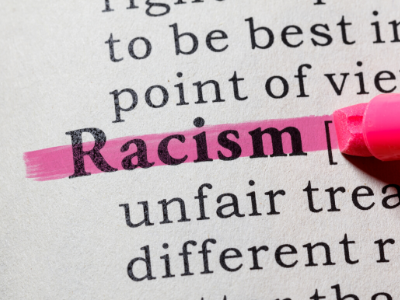

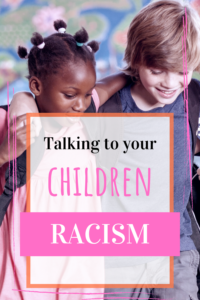




Like you said, children recognize race as early as 2 years old. I don’t have children but I do have students and teaching them and talking to them about the black experience all seems so new to them because it is not a main topic for discussion in the home. As early as possible and add on as they get older.
The definitely understand it as early as two. Annalise was two when Deuce was born. The first thing she asked me when she met him for the first time was “why isn’t he brown like us?” I took that moment to educate her and let her know that Black people come in many shades, and they they are all beautiful in his sight.
I enjoyed reading your article and I am sorry for the bigotry you have been shown. I am a white grandmother. My white grandson is three. At this point in his life, he only sees boys and girls. He just wants to play and color isn’t an issue. How do we talk to him about race?
Thank you for your comment Lori. At his age, I would start with books. Most children’s books either feature animals as main characters or white people. I would be intentional about purchasing and reading him books about people from different races and ethnicities. At his age, it’s simply about exposure. The goal should be to have him understand that people come in every shade and shape, and that is okay.
I think post is amazing. I remember receiving the talk when I was 10 or 11. I really didn’t understand why someone would dislike my skin color until my sophomore year of high school, when I was one of less than 10 black kids in my entire school. I don’t have kids of my own yet, but my wife and I have talked about when we will have to sit down with our kids and have the talk because it is a reality we cannot hide from them.
Thank you for this post, Tiffany.
Thank you for your kind words. You are absolutely right, we cannit hide these things from them.
[…] “When Should You Talk to Your Children About Racism” by Tiffany Harrison is an article that I can, unfortunately, relate to. I remember receiving the talk from my father when I was 10 or 11. I didn’t understand why someone would dislike my skin color until my sophomore year of high school when I was one of less than 10 black kids in my entire school. I don’t have kids of my own yet, but my wife and I have talked about when we will have to sit down with our kids and have to talk about racism. Because this is a reality we cannot and should not hide from those we want to protect the most. […]